(중국) 중국 공산당원의 결혼식과 장례식에 대한 새로운 지침
출처: http://www.bbc.com/news/world-asia-china-35610194
Chinese Communist Party explains wedding and funeral rules 중국공산당 결혼식과 장례식에 대한 새로운 지침
- 4 hours ago
- China
 Getty Images
Getty ImagesChina's Communist Party this week set out the thinking behind recent guidance on weddings and funerals for party members.
The theme was frugality when the party's disciplinary watchdog issued a raft of tweaked guidelines for its 88 million members last October.
Even though the wording was vague, Wednesday's statement on how these guidelines should be enforced remained well within the spirit of the party's ongoing austerity drive.
It is all in the name of stamping out corruption, but the perceived intrusion into life's most significant rituals sparked a backlash online.
1. Don't profit from a wedding or a funeral 결혼식이나 장례식에서 이윤을 챙기지 마라.
It is part of traditional Chinese custom for guests at such events to give cash to the bride and groom or to the grieving family.
At weddings, gifts are seen as wishing the couple good luck, whereas at funerals the money is seen as a way of paying condolences and it also helps out with funeral expenses.
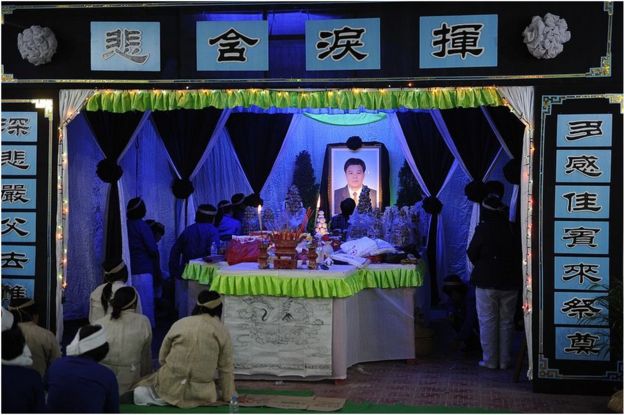 AFP/Getty Images
AFP/Getty ImagesWedding and funerals are seen as key indicators of one's social status in Chinese culture, and there is an emphasis on holding extravagant affairs. 중국문화에서 결혼식이나 장례식은 사회적 위치를 가늠하는 중요한 지표들이다. 그래서 호화행사를 개최하는 걸 중시하는 경향이 있다.
Now, members are discouraged from using their power to "hold large parties" and using the "manpower and resources" that come with one's position, such as employees or service staff, at such events. 당원들은 자신의 권력을 이용해 "대규모 연회를 개최하거나", 그런 연회에서 자신의 직위 즉 고용주나 이에 상응하는 위치에 따라나오는 "인력이나 자원"을 이용해선 안 된다.
They also cannot use weddings and funerals "as vehicles to make money", so the custom of giving and receiving money at these events is frowned upon. 아울러 돈을 버는 계기로 결혼식이나 장례식을 이용할 수 없으므로, 이런 행사에서 돈을 주거나 받는 행위는 눈살을 찌푸리는 행위가 된다. (밝은 하늘: be frowned upon ~에 눈살을 찌프리다, 못마땅해하다)
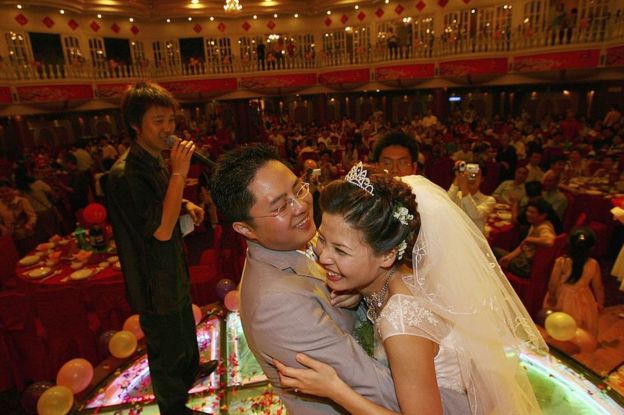 China Photos
China PhotosThe watchdog noted that sometimes members could hold events on a very large scale or invite lots of guests" where in the process they would receive "large sums in gifts".
2. Don't be a nuisance 민폐 끼치는 존재가 되지 마라.
In smaller villages weddings and funerals can last days and involve mass processions.
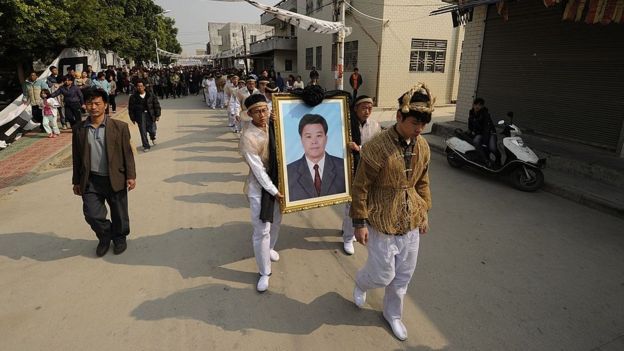 AFP
AFPSo the guidance noted that such events cannot "disturb or obstruct daily production, lives, work, business, teaching, research, traffic and any other regular orders".
It added for good measure that they also cannot "injure or kill people" or "violate the interests of the country, collective and people".
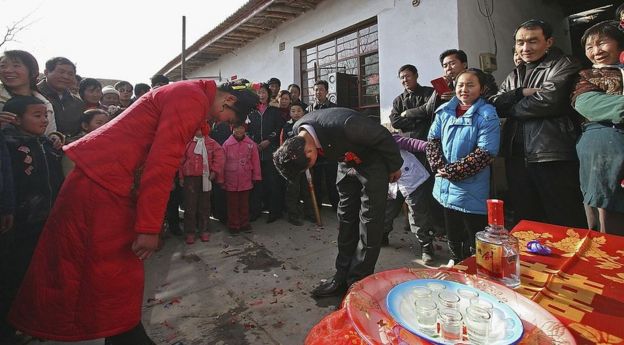 China Photos
China Photos3. Leave behind the old traditions 옛날 관습을 떠나보내라.
Members are encouraged not to adhere blindly to their local cultural customs, although the watchdog stressed this did not mean a total ban on local traditions.
"Members, particularly those in the leadership, must note that they could cause a bad impression among the public, and so should observe customs while also organising simple and regular weddings and funerals," it said.
But the explanation cut no ice among some, as a backlash took place online. (밝은하늘: cut not ice 아무 소용이 없다)
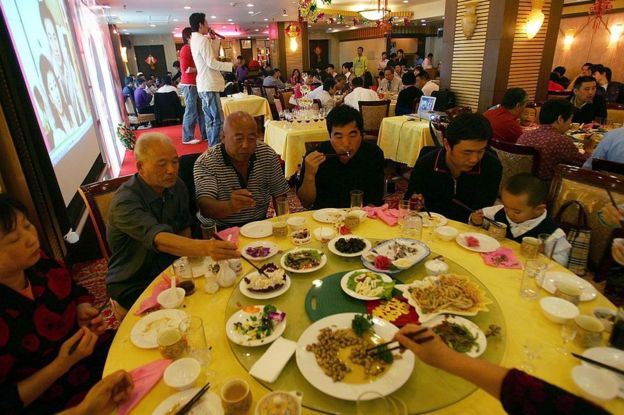 Getty Images
Getty ImagesOn microblogging network Weibo, many users complained of the rules as being too overbearing and draconian.
"The enforcing of rules has become askew, even normal citizens are being regulated now," said one user.
"Holding a wedding can damage the country's interests? Are you referring to a marriage with the Dalai Lama?" mocked another.